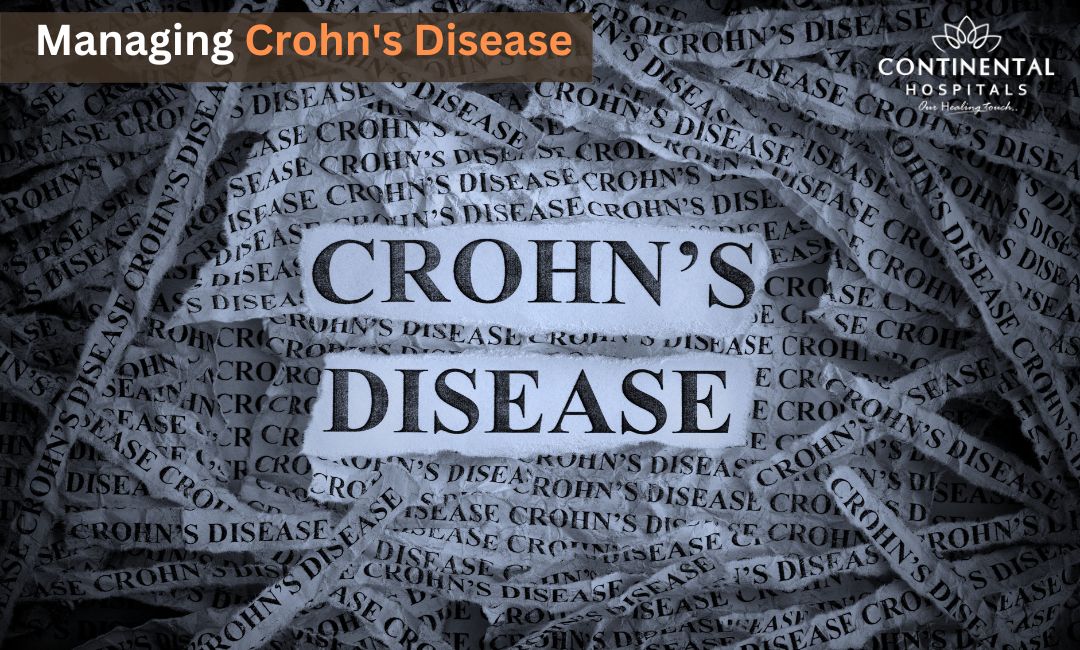Crohn's Disease is a chronic inflammatory bowel disease (IBD) that affects millions of people worldwide, characterized by inflammation of the gastrointestinal (GI) tract. This condition can cause a range of symptoms, including abdominal pain, diarrhea, fatigue, weight loss, and in severe cases, complications such as strictures and fistulas. Managing Crohn's Disease effectively requires a multifaceted approach that integrates medical treatment, dietary adjustments, lifestyle modifications, and in some cases, surgical intervention. This comprehensive guide explores in-depth the various aspects of managing Crohn's Disease to help patients achieve better disease control and quality of life.
Understanding Crohn's Disease
Crohn's Disease is known for its unpredictable nature, with symptoms that can vary widely among individuals. The condition primarily affects the lining of the digestive tract, leading to chronic inflammation that can penetrate deep into affected tissues. While the exact cause of Crohn's Disease remains unclear, it is believed to involve a complex interaction of genetic predisposition, immune system dysfunction, and environmental factors such as diet and stress.
Symptoms of Crohn's Disease
Crohn's Disease can affect any part of the digestive tract, from the mouth to the anus. Common symptoms include:
- Abdominal pain and cramping
- Diarrhea (often bloody)
- Fatigue
- Weight loss
- Fever
- Loss of appetite
- Perianal disease (fistulas, abscesses)
Diagnosis of Crohn's Disease
Diagnosing Crohn's Disease involves a combination of medical history, physical examination, imaging tests (such as MRI or CT scans), endoscopy, and biopsy. Differentiating Crohn's Disease from other gastrointestinal disorders, such as ulcerative colitis, is crucial for developing an appropriate treatment plan.
Medical Treatment Options
Medications
Medications play a central role in the management of Crohn's Disease, aiming to achieve and maintain remission, reduce inflammation, and alleviate symptoms. Treatment plans are tailored based on the severity of the disease and individual response to therapy. Commonly prescribed medications include:
Aminosalicylates (5-ASAs): Such as mesalamine, which are anti-inflammatory drugs used primarily for mild to moderate cases of Crohn's Disease, particularly affecting the colon.
Corticosteroids: Such as prednisone, which are potent anti-inflammatory agents used to rapidly reduce inflammation during acute flare-ups. However, they are typically used short-term due to potential long-term side effects.
Immunomodulators: Such as azathioprine, 6-mercaptopurine, and methotrexate, which work to suppress the immune system and reduce inflammation in patients who do not respond to other treatments or who require long-term therapy.
Biologic Therapies: These include TNF-alpha inhibitors (e.g., infliximab, adalimumab, certolizumab pegol), which target specific proteins in the immune system involved in inflammation. Newer biologics like ustekinumab (IL-12/23 inhibitor) and vedolizumab (integrin receptor antagonist) offer additional options for patients who do not respond to conventional treatments.
Nutritional Therapy
Nutritional interventions can complement medical treatment in managing Crohn's Disease, particularly during periods of active inflammation or when patients have nutritional deficiencies. Key nutritional strategies include:
Exclusive Enteral Nutrition (EEN): Involves consuming a nutritionally complete liquid diet for a period of time to induce remission and promote mucosal healing. EEN may be recommended for children or adults with moderate to severe Crohn's Disease, as it provides essential nutrients while resting the digestive tract.
Dietary Modifications: While diet alone cannot cause or cure Crohn's Disease, certain dietary adjustments may help manage symptoms and support overall health. Common approaches include:
Low-residue Diet: Limits high-fiber foods to reduce bowel movements and minimize abdominal discomfort during flare-ups.
Avoiding Trigger Foods: Such as spicy foods, alcohol, caffeine, and dairy products, which can exacerbate symptoms in some individuals.
Supplements: Some patients may benefit from vitamin and mineral supplements, such as iron, calcium, vitamin D, and B vitamins, to address deficiencies caused by malabsorption or medication side effects.
Surgical Intervention
Surgery may be necessary for patients with Crohn's Disease who develop complications that do not respond to medical therapy. Common surgical procedures include:
Strictureplasty: Surgical widening of narrowed sections of the intestine (strictures) to improve intestinal function and reduce the risk of obstruction.
Bowel Resection: Removal of damaged portions of the intestine affected by strictures, fistulas, or abscesses to relieve symptoms and prevent further complications.
Fistula Repair: Surgical closure or diversion of abnormal connections (fistulas) between the intestine and other organs or skin, which can reduce infection risk and improve quality of life.
Lifestyle Modifications
Effective management of Crohn's Disease goes beyond medical and nutritional therapies to include lifestyle adjustments that support overall well-being and reduce disease activity:
Stress Management: Stress does not cause Crohn's Disease but can exacerbate symptoms. Techniques such as mindfulness meditation, yoga, and regular exercise can help reduce stress levels and improve mental health.
Smoking Cessation: Smoking has been linked to more severe Crohn's Disease symptoms and decreased response to treatment. Quitting smoking is essential for disease management and overall health improvement.
Exercise: Regular physical activity can help maintain healthy weight, improve cardiovascular fitness, and promote overall well-being. However, it is important to balance exercise with periods of rest during flare-ups or recovery from surgery.
Monitoring and Supportive Care
Managing Crohn's Disease requires ongoing monitoring and support to assess disease activity, adjust treatment as needed, and prevent complications. Key aspects of supportive care include:
Regular Follow-ups: Patients should schedule regular visits with their gastroenterologist to monitor disease progression, evaluate treatment effectiveness, and address any concerns or changes in symptoms.
Patient Education: Providing patients with comprehensive information about their condition, medications, and lifestyle management strategies empowers them to take an active role in their care and make informed decisions.
Support Groups: Joining support groups or seeking counseling can provide emotional support, practical advice, and a sense of community for individuals living with Crohn's Disease and their caregivers.
Conclusion
In conclusion, managing Crohn's Disease requires a personalized and multidisciplinary approach that integrates medical treatment, nutritional therapy, lifestyle modifications, and supportive care. With advancements in medication options, surgical techniques, and understanding of disease mechanisms, many patients can achieve and maintain remission, leading to improved quality of life and long-term disease control. It is crucial for patients to work closely with their healthcare providers to develop a tailored management plan that addresses their unique needs and preferences. By combining effective medical treatment with proactive lifestyle adjustments, individuals with Crohn's Disease can optimize their health outcomes and live well despite the challenges posed by this chronic condition.
Related Blogs:
.webp)







